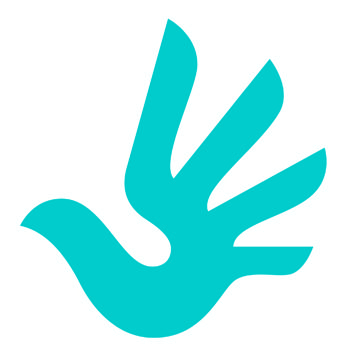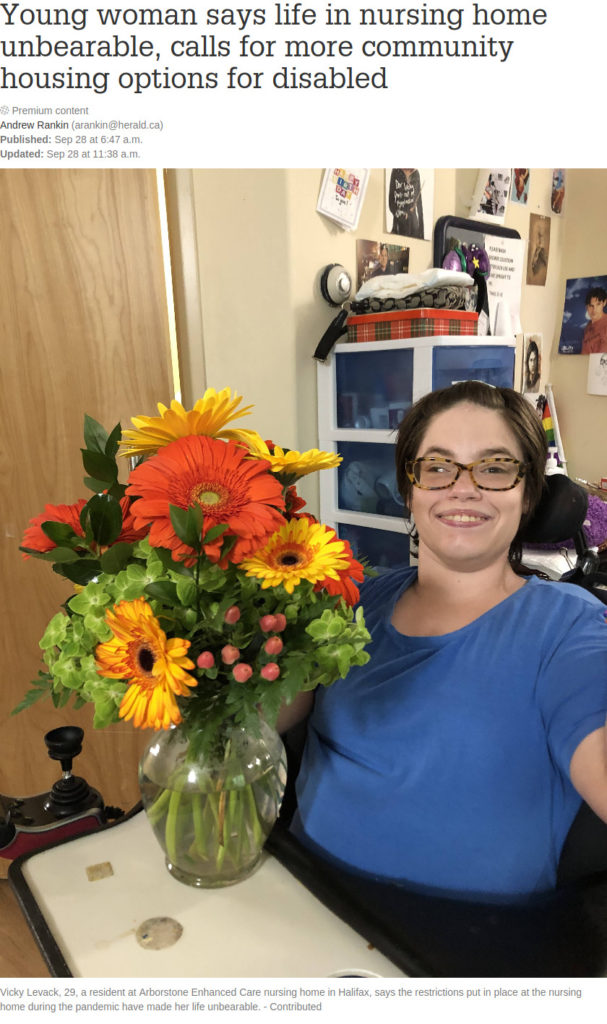Excerpts from The Chronicle-Herald
VOICE OF THE PEOPLE — Oct. 3, 2020
[click here for full letters page]
Meagre offerings
Andrew Rankin’s Sept. 28 front-page article, “Woman says living in nursing home unbearable,” caused me to flash back to my time as a pediatric social worker.
I witnessed families struggling with impossible decisions. These were families with youth with disabilities facing what we referred to as transitions — from living in the family home to living independently.
I remember reassuring them that this is a natural process towards adulthood. That young adults crave independence and even a little risk. It is a good thing; a time for parents to pat themselves on the back because they had, as the old saying goes, given their children roots and wings.
But that is where the road to transition to adulthood divides for youth with more complicated disabilities. Their road is full of potholes because the choice of where to live is so limited. In the end, these hopeful youth and their families have to rely on systems that are not designed for choice; and because few families could afford the cost of the care for a loved one with a significant disability, they are compelled to agree to these meagre offerings.
This is the tragic way in which some youth with disabilities come to live in long-term care. Like Vicky Levack, they had no choice.
Dawn LeBlanc, Halifax
Disabled discarded
Re: “Woman says living in nursing home unbearable.” It was almost unbearable to read Andrew Rankin’s powerful front-page article on Sept. 28 because the situation Vicky Levack finds herself in is so unnecessary, so unacceptable and so counter to our publicly held views about protecting the human rights and choices of Nova Scotians with disabilities.
And sadly, Levack’s story is not unique. There are many other young people with cognitive and physical disabilities who are living completely inappropriately in nursing homes because there are no other options available.
The issue is that their need for 24-hour-a-day support exceeds the six to seven hours allowed under the provincial government’s Self-Managed Care program. Unless an individual has a family to fill that care gap, and it’s a big one, or has won the lottery and can afford paid nursing services, there is no alternative to a nursing home. No other choices.
In 2013, the disability community was encouraged when the provincial government accepted the recommendations of a joint community-government advisory committee to create a five-year action plan (almost immediately changed to a 10-year plan) to significantly increase community-based supported living options while decreasing reliance on large institutions. To date, the leadership and allocation of resources needed to create real community options for Vicky Levack and hundreds of others seeking choice, equality and good lives in inclusive communities has been sorely lacking. And that should be unwelcome, unbearable news for all of us.
Wendy Lill, Dartmouth, Community Homes Action Group
Ongoing scandal
Thank you to Andrew Rankin for his excellent article Sept. 28 exposing the massive violation of Vicky Levack’s human rights and those of thousands of disabled Nova Scotians.
Nova Scotia institutionalizes far more people with disabilities per capita than any other Canadian province. If an article on every person in Ms. Levack’s unbearable situation were to appear every day on the front page of The Chronicle Herald, it would take several years to publish them all.
In spite of the provincial government’s commitment in 2013 to ensure every Nova Scotian with a disability would be living in the community by 2023, we are further from that goal than ever. And to date, and most scandalously, and to its great shame, even the Nova Scotia Human Rights Commission has tacitly supported this incredible and brutal human rights violation.
Murray Pickering, Greenfield

